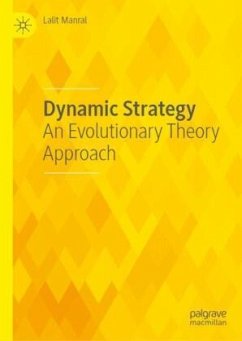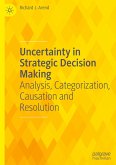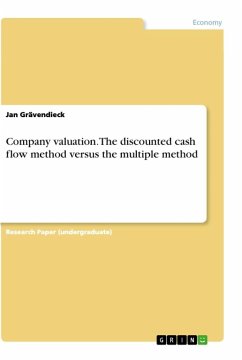This book explains the dynamic processes of strategic management through scientific theorizing of the temporal heterogeneity of profit-seeking firms strategic behavior. The theoretical explanation of dynamic strategy provided herein, which is not without significant normative implications, captures the inherent paradox of dynamic strategy. That a stream of dynamically inconsistent elemental actions of dynamic strategy, which are inextricably linked to the fundamental drivers of enterprise value in dynamic competitive environments, is requisite to achieve dynamically consistent returns over the firm s lifetime. The implementation challenge for a firm seeking to achieve its intended objective lies in comprehending (and managing) the dynamic interplay among the processes outside and within the firm that co-create the dynamic context of the continuously emerging stream of strategic actions, which are elemental to dynamic strategy, and their performance outcomes.
The book applies evolutionary theory to provide an alternative conceptualization of firms temporal modification of strategic behavior. The explanatory framework is that of a quasi-Darwinian evolution by economic selection as opposed to the Darwinian evolution by natural selection. A quasi-Darwinian evolutionary theory of dynamic strategy, which situates the strategizing firm in an economic population of profit-seeking firms, conceptualizes dynamic strategy both as a determinant ( driver ) and an outcome ( product ) of hybrid as opposed to top-down artificial or bottom-up natural economic evolution.
Catering to scholars in strategic management with appeal to most management sub-disciplines, this work provides researchers with the conceptual wherewithal to both formally and empirically model a wide variety of phenomena in dynamic industrial settings.
The book applies evolutionary theory to provide an alternative conceptualization of firms temporal modification of strategic behavior. The explanatory framework is that of a quasi-Darwinian evolution by economic selection as opposed to the Darwinian evolution by natural selection. A quasi-Darwinian evolutionary theory of dynamic strategy, which situates the strategizing firm in an economic population of profit-seeking firms, conceptualizes dynamic strategy both as a determinant ( driver ) and an outcome ( product ) of hybrid as opposed to top-down artificial or bottom-up natural economic evolution.
Catering to scholars in strategic management with appeal to most management sub-disciplines, this work provides researchers with the conceptual wherewithal to both formally and empirically model a wide variety of phenomena in dynamic industrial settings.








